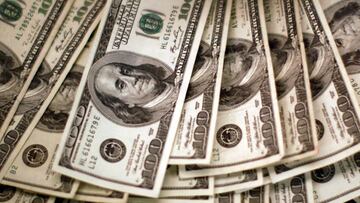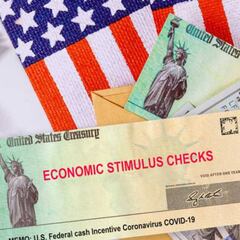Second stimulus check: could it be higher than $1,200?
As hopes wither to almost none on negotiations between Republicans and Democrats reaching an accord before Election Day, will it be worth the wait?

The stalemate between negotiators House Speaker Nancy Pelosi for the Democrats and Republican Treasury Secretary Steve Mnuchin continues as the 3 November general election races down the track.
Both sides say that they remain “optimistic” that a deal can be struck, but language on healthcare and the implementation on coronavirus testing and tracing seem to be sticking points.
Pelosi’s spokesman Drew Hammill tweeted this week;
“As the nation faces record spikes in new COVID cases, we continue to eagerly await the Administration’s acceptance of our health language, which includes a national strategic plan on testing and tracing.”
The Speaker and Secretary Mnuchin spoke today at 2:00 p.m. by phone for 52 minutes. As the nation faces record spikes in new COVID cases, we continue to eagerly await the Administration’s acceptance of our health language, which includes a national strategic plan on... (1/3)
— Drew Hammill (@Drew_Hammill) October 26, 2020
Extremely slim chance of bill before election
Negotiators remain divided on their desired overall spend, but are edging closer. While Pelosi has held out for an outlay of over $2tn, with House Democrats passing a $2.4 proposal in the lower chamber at the start of October, the White House has sought a lower amount, but has now upped its offer to $1.9tn.
As the two sides continue to haggle, however, it seems increasingly unlikely that an agreement will come with enough time left for the bill to then be passed by both the House and the Senate, and signed into law by Trump, before the election.
Indeed, White House Director of Strategic Communications Alyssa Farah hardly fueled optimism of an imminent stimulus deal when she told Fox News on Tuesday that she hoped it would come "within weeks".
What will be in the bill when it does pass?
While talks are ongoing, it’s impossible to say with certainty exactly what the terms will be of a new bill, but we know that both sides appear to be in agreement that a second round of stimulus checks of around $1,200 to qualifying Americans, is necessary.
It has not been stated explicitly that the checks would amount to more than $1,200 in a new bill, but there are some ways in which the amount you get could increase or decrease compared to the amount you received before.
In the new round of relief what may change is eligibility criteria. And if your situation has changed or if the rules have changed, you could be in the running to get more, or less than the first check.
In March when assessing payments to individuals under the CARES act, the IRS looked at the 2019 federal tax returns, but months have passed since then, so changes that occurred in your financial or personal circumstances could affect the amount or eligibility of a new check.
You could end up with a smaller check than before if you:
- Got a new job, or your salary has gone up since the first round.
- Now have fewer dependents that qualify for support payments.
- Owe child support: this was the case with the CARES Act too.
You could end up with a larger check than before if:
- You have dependents: in the Democrats version of the bill, the eligibility of dependents may be extended so that children over 16 and adults under your care also qualify as dependents. And in a recent white house proposal, the payout for existing child dependents (under 16 years) was doubled to $1,000.
- You've lost your job or part of salary: if your wages have dropped or you have been made unemployed since last time, you could be entitled to more cash.
- You got married: this would depend on your partner’s filing status and any new dependents.
- You are incarcerated: a new federal ruling determined that the IRS owes stimulus checks to inmates currently in prison.
Incarcerated community members are entitled to a $1,200 economic stimulus payment.
— Congresswoman Ayanna Pressley (@RepPressley) October 25, 2020
The deadline to claim a missing check is November 21 at 3pm ET.
Share widely: https://t.co/ikV1b8Xueg
- You are an undocumented immigrant: also in Democrat proposals, if immigrants without papers are paying taxes, they should be eligible for stimulus payments. It may be that those people are only eligible for the second round of payments, or the change in qualification could be make retroactive so that those who qualify get both checks at the same time.
Related stories
In the meantime until negotiations end and a bill is agreed on, you should make sure that you are registered for direct deposit with your bank, that the postal service are informed if you’ve moved house and be alert for scams which are still ongoing as many people await their first payments.
CNET have devised a stimulus check calculator so you can see more specifically what may apply to you this time round.


